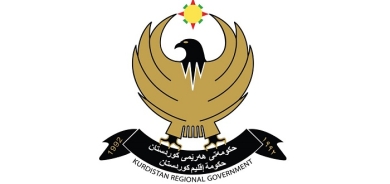Dr. Sherzad Najar's Perspective: Unraveling the Constitutional Spirit in Governance and Judicial Oversight

In his influential treatise, "Important Things in Constitutional Law," Dr. Sherzad Najar delves into the essence of constitutional governance and judicial oversight, echoing the profound assertion by General Charles de Gaulle that "the constitution is the soul, institutions, and implementation." Dr. Najar's scholarly exploration draws from classical philosophical thought, particularly Montesquieu's notion of laws possessing an inherent "soul" or fundamental principle that animates the life of the state, highlighting the dynamic and living nature of constitutional frameworks and their adaptability in modern governance.
Central to Dr. Najar's discourse is the role of the constitution as the foundational document shaping the institutional architecture of a state, delineating the roles and powers of governing bodies, and fostering a delicate equilibrium of power among diverse political forces. This inherent political nature not only influences governance but also shapes societal power dynamics, accentuating the interplay between authority and accountability within democratic systems.
Dr. Najar's scholarship prompts critical reflection on the authenticity of commitments to constitutional principles and the intrinsic "spirit" of constitutions across varying political contexts and historical epochs, challenging the dichotomy between constitutional ideals and political realities.
Drawing insights from legal luminaries such as Karl Schmitt, Dr. Najar underscores the essence of a constitution lying in its fundamental principles, which dictate the organizational structure and powers of the state. These foundational principles, viewed as political decisions, not only define the state's identity but also establish boundaries for subsequent legislative actions and judicial interpretations.
Crucially, Dr. Najar emphasizes that constitutional amendments necessitate the collective will of governing authorities, representing the constituent power. This authoritative stance underscores the permanence of certain constitutional provisions, distinguishing them from ordinary legislative enactments subject to routine amendment processes.
In the realm of judicial oversight, Dr. Najar posits that the judiciary, including esteemed institutions like the Supreme Constitutional Court, assumes a pivotal role in interpreting and elucidating the constitution's spirit through its rulings and legal precedents. Nonetheless, judicial oversight encounters challenges stemming from gaps in the scrutiny of essential constitutional principles, necessitating explicit constitutional provisions that delineate the scope of judicial review and governance.
In conclusion, Dr. Sherzad Najar's scholarship invites a nuanced exploration of the constitutional spirit, reflecting the dynamic interplay between principles, institutions, and implementation in contemporary governance systems. This scholarly discourse underscores the imperative of upholding constitutional fidelity while navigating the evolving demands of modern governance and judicial oversight, ultimately contributing to a deeper understanding of constitutional law's foundational principles.















